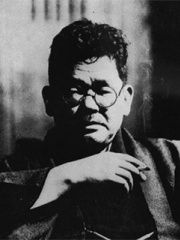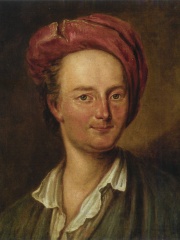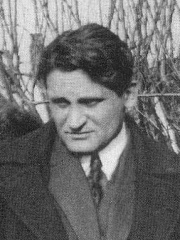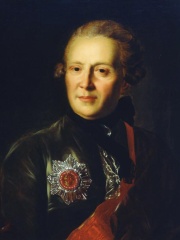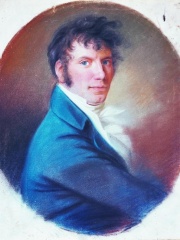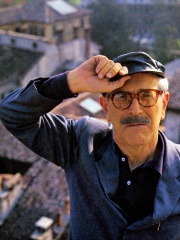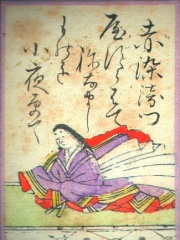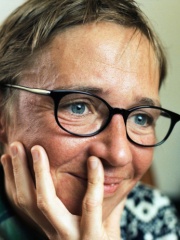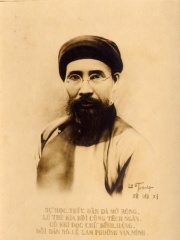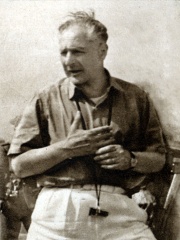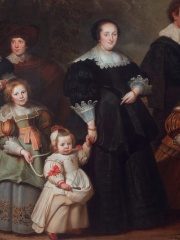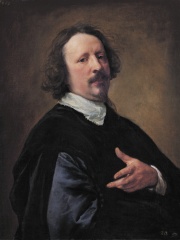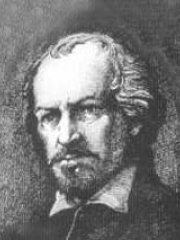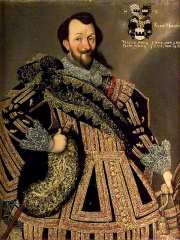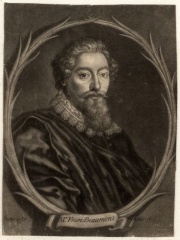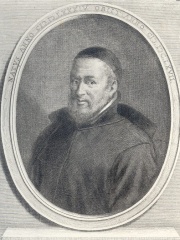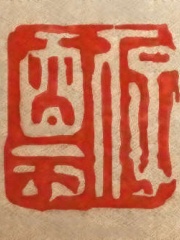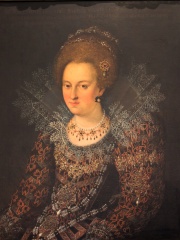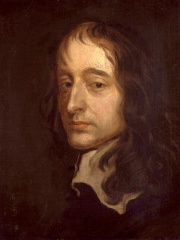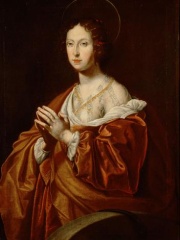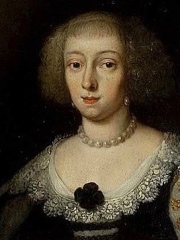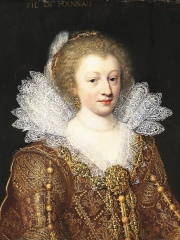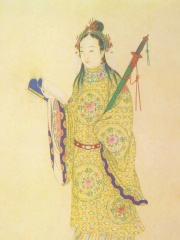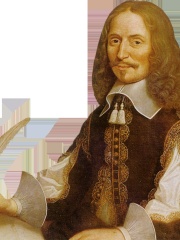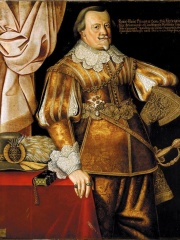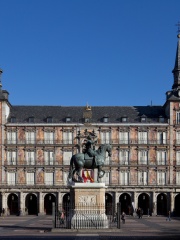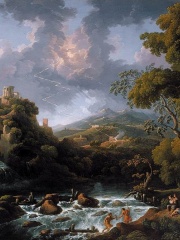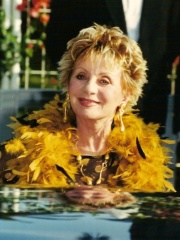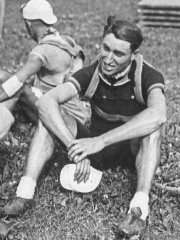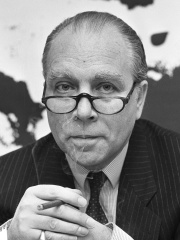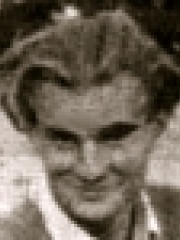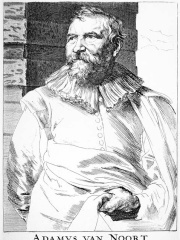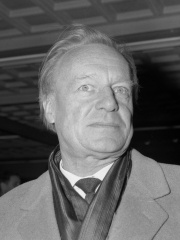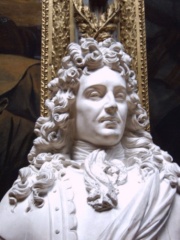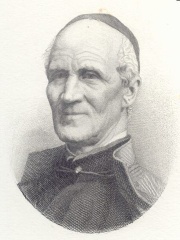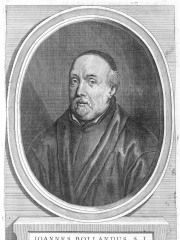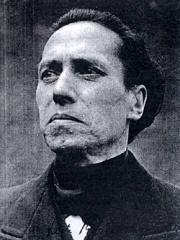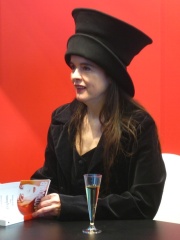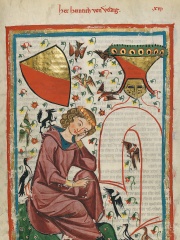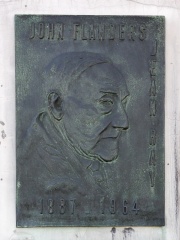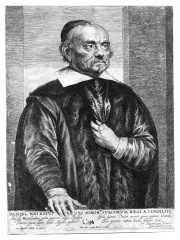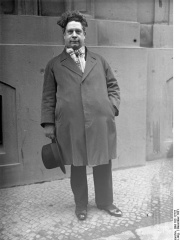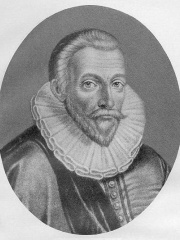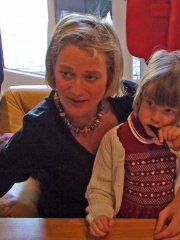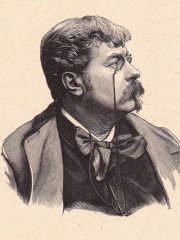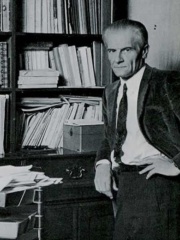WRITER
Caspar Barlaeus
1584 - 1648
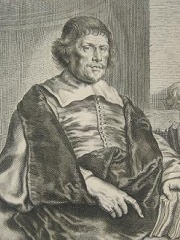
 Caspar Barlaeus
Caspar Barlaeus
Caspar Barlaeus (12 February 1584 – 14 January 1648) was a Flemish polymath and Renaissance humanist, a theologian, poet, and historian. Read more on Wikipedia
His biography is available in 16 different languages on Wikipedia. Caspar Barlaeus is the 3,385th most popular writer (down from 3,200th in 2024), the 484th most popular biography from Belgium (down from 447th in 2019) and the 24th most popular Belgian Writer.
Memorability Metrics
Page views of Caspar Barlaeus by language
Among WRITERS
Among writers, Caspar Barlaeus ranks 3,385 out of 7,302. Before him are Kan Kikuchi, Ewald Christian von Kleist, Yury Olesha, Alexander Sumarokov, Yury Vlasov, and Jens Baggesen. After him are Mario Soldati, Akazome Emon, Susanna Tamaro, Apion, Phan Bội Châu, and Augusto Genina.
Most Popular Writers in Wikipedia
Go to all RankingsKan Kikuchi
1888 - 1948
HPI: 59.44
Rank: 3,379
Ewald Christian von Kleist
1715 - 1759
HPI: 59.43
Rank: 3,380
Yury Olesha
1899 - 1960
HPI: 59.43
Rank: 3,381
Alexander Sumarokov
1717 - 1777
HPI: 59.41
Rank: 3,382
Yury Vlasov
1935 - 2021
HPI: 59.41
Rank: 3,383
Jens Baggesen
1764 - 1826
HPI: 59.40
Rank: 3,384
Caspar Barlaeus
1584 - 1648
HPI: 59.40
Rank: 3,385
Mario Soldati
1906 - 1999
HPI: 59.40
Rank: 3,386
Akazome Emon
956 - 1041
HPI: 59.40
Rank: 3,387
Susanna Tamaro
1957 - Present
HPI: 59.40
Rank: 3,388
Apion
30 BC - 45
HPI: 59.39
Rank: 3,389
Phan Bội Châu
1867 - 1940
HPI: 59.39
Rank: 3,390
Augusto Genina
1892 - 1957
HPI: 59.39
Rank: 3,391
Contemporaries
Among people born in 1584, Caspar Barlaeus ranks 16. Before him are Cornelis de Vos, Gaspar de Crayer, Mehmed III Giray, Melchior Grodziecki, Herman Wrangel, and Francis Beaumont. After him are Grégoire de Saint-Vincent, Hu Zhengyan, Barbara Sophie of Brandenburg, John Selden, Philip, Duke of Schleswig-Holstein-Sonderburg-Glücksburg, and Thomas van Erpe. Among people deceased in 1648, Caspar Barlaeus ranks 14. Before him are Claudia de' Medici, Claude Françoise de Lorraine, Countess Catharina Belgica of Nassau, Qin Liangyu, Vincent Voiture, and Edward Herbert, 1st Baron Herbert of Cherbury. After him are Frederick IV, Duke of Brunswick-Lüneburg, and Juan Gómez de Mora.
Others Born in 1584
Go to all RankingsCornelis de Vos
PAINTER
1584 - 1651
HPI: 63.14
Rank: 10
Gaspar de Crayer
PAINTER
1584 - 1669
HPI: 62.47
Rank: 11
Mehmed III Giray
POLITICIAN
1584 - 1629
HPI: 60.96
Rank: 12
Melchior Grodziecki
RELIGIOUS FIGURE
1584 - 1619
HPI: 60.60
Rank: 13
Herman Wrangel
POLITICIAN
1584 - 1643
HPI: 60.50
Rank: 14
Francis Beaumont
WRITER
1584 - 1616
HPI: 60.38
Rank: 15
Caspar Barlaeus
WRITER
1584 - 1648
HPI: 59.40
Rank: 16
Grégoire de Saint-Vincent
MATHEMATICIAN
1584 - 1667
HPI: 59.10
Rank: 17
Hu Zhengyan
ARTIST
1584 - 1674
HPI: 57.76
Rank: 18
Barbara Sophie of Brandenburg
POLITICIAN
1584 - 1636
HPI: 57.01
Rank: 19
John Selden
LAWYER
1584 - 1654
HPI: 56.91
Rank: 20
Philip, Duke of Schleswig-Holstein-Sonderburg-Glücksburg
NOBLEMAN
1584 - 1663
HPI: 56.89
Rank: 21
Thomas van Erpe
PHILOSOPHER
1584 - 1624
HPI: 56.04
Rank: 22
Others Deceased in 1648
Go to all RankingsClaudia de' Medici
POLITICIAN
1604 - 1648
HPI: 65.00
Rank: 8
Claude Françoise de Lorraine
POLITICIAN
1612 - 1648
HPI: 64.77
Rank: 9
Countess Catharina Belgica of Nassau
NOBLEMAN
1578 - 1648
HPI: 63.18
Rank: 10
Qin Liangyu
MILITARY PERSONNEL
1574 - 1648
HPI: 62.19
Rank: 11
Vincent Voiture
WRITER
1597 - 1648
HPI: 59.87
Rank: 12
Edward Herbert, 1st Baron Herbert of Cherbury
POLITICIAN
1583 - 1648
HPI: 59.71
Rank: 13
Caspar Barlaeus
WRITER
1584 - 1648
HPI: 59.40
Rank: 14
Frederick IV, Duke of Brunswick-Lüneburg
POLITICIAN
1574 - 1648
HPI: 57.73
Rank: 15
Juan Gómez de Mora
ARCHITECT
1586 - 1648
HPI: 56.56
Rank: 16
In Belgium
Among people born in Belgium, Caspar Barlaeus ranks 484 out of 1,190. Before him are Jan Frans van Bloemen (1662), Annie Cordy (1928), Frans Janssens (1945), Marcel Kint (1914), Mark Eyskens (1933), and Charles de Tornaco (1927). After him are Émile Grumiaux (1861), Georges Vantongerloo (1886), Adam van Noort (1562), André Cluytens (1905), Ferdinand de Marsin (1656), and Peter Jan Beckx (1795).
Others born in Belgium
Go to all RankingsJan Frans van Bloemen
PAINTER
1662 - 1749
HPI: 59.56
Rank: 478
Annie Cordy
ACTOR
1928 - 2020
HPI: 59.53
Rank: 479
Frans Janssens
SOCCER PLAYER
1945 - 2024
HPI: 59.53
Rank: 480
Marcel Kint
CYCLIST
1914 - 2002
HPI: 59.53
Rank: 481
Mark Eyskens
POLITICIAN
1933 - Present
HPI: 59.47
Rank: 482
Charles de Tornaco
RACING DRIVER
1927 - 1953
HPI: 59.43
Rank: 483
Caspar Barlaeus
WRITER
1584 - 1648
HPI: 59.40
Rank: 484
Émile Grumiaux
ATHLETE
1861 - 1932
HPI: 59.39
Rank: 485
Georges Vantongerloo
PAINTER
1886 - 1965
HPI: 59.39
Rank: 486
Adam van Noort
PAINTER
1562 - 1641
HPI: 59.39
Rank: 487
André Cluytens
MUSICIAN
1905 - 1967
HPI: 59.37
Rank: 488
Ferdinand de Marsin
POLITICIAN
1656 - 1706
HPI: 59.28
Rank: 489
Peter Jan Beckx
RELIGIOUS FIGURE
1795 - 1887
HPI: 59.22
Rank: 490
Among WRITERS In Belgium
Among writers born in Belgium, Caspar Barlaeus ranks 24. Before him are William of Moerbeke (1215), Jean Bolland (1596), Michel de Ghelderode (1898), Amélie Nothomb (1967), Heinrich von Veldeke (1150), and Jean Ray (1887). After him are Daniël Heinsius (1580), Felix Timmermans (1886), Jan Gruter (1560), Princess Delphine of Belgium (1968), Camille Lemonnier (1844), and Félicien Marceau (1913).
William of Moerbeke
1215 - 1286
HPI: 63.02
Rank: 18
Jean Bolland
1596 - 1665
HPI: 62.49
Rank: 19
Michel de Ghelderode
1898 - 1962
HPI: 62.11
Rank: 20
Amélie Nothomb
1967 - Present
HPI: 61.60
Rank: 21
Heinrich von Veldeke
1150 - 1184
HPI: 61.49
Rank: 22
Jean Ray
1887 - 1964
HPI: 61.19
Rank: 23
Caspar Barlaeus
1584 - 1648
HPI: 59.40
Rank: 24
Daniël Heinsius
1580 - 1655
HPI: 59.21
Rank: 25
Felix Timmermans
1886 - 1947
HPI: 58.72
Rank: 26
Jan Gruter
1560 - 1627
HPI: 58.15
Rank: 27
Princess Delphine of Belgium
1968 - Present
HPI: 57.69
Rank: 28
Camille Lemonnier
1844 - 1913
HPI: 57.44
Rank: 29
Félicien Marceau
1913 - 2012
HPI: 57.42
Rank: 30
